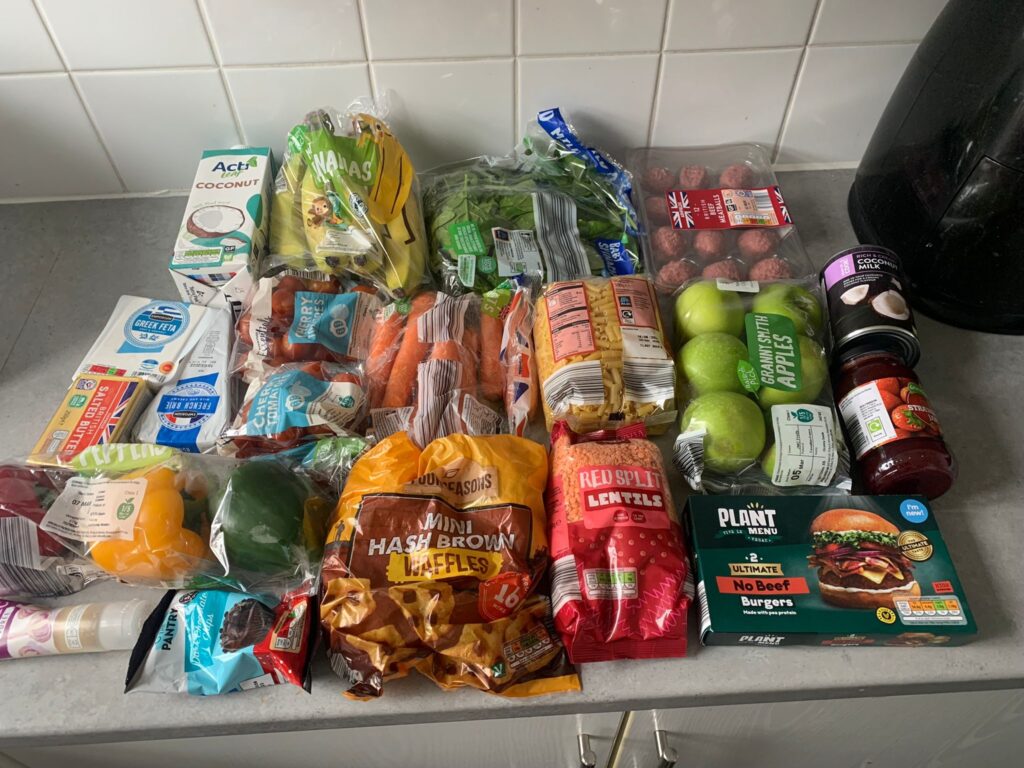Lancaster University researchers investigating attitudes, behaviours and practices around plastic food packaging have published a suite of reports to highlight their findings and offer recommendations to help reduce the UK’s plastic usage and contribute towards the UK Plastics Pact goals.
The Plastic Packaging in People’s Lives (PPiPL) project was part of an Enabling Research Programme managed by the Natural Environment Research Council and funded by UKRI’s Smart Sustainable Plastic Packaging Challenge, delivered by Innovate UK. It brought together a multi-disciplinary team of academics who worked hand-in-hand with supermarkets, businesses, charities and waste management companies for over three years to explore the ins and outs of how the UK thinks and acts when it comes to plastic food packaging. A total of 552 people and 91 organisations were involved in the research via interviews with consumers and households, workshops, supply chain companies and waste management facility visits.

The reports present important findings on key issues that impact on plastic packaging sustainability, including that UK households may often be ‘wishcycling’ (putting things in the recycling and hoping for the best) rather than recycling. The research also suggests that reducing food waste at home is as much a priority as minimising plastic – and can sometimes trump concerns over packaging. In addition to consumer behaviour, the project also explored many other factors, including how plastic packaging is managed once it becomes a waste, the role of innovation, and how government policy, voluntary initiatives and market activity shape the landscape.
“We have studied the plastic packaging cycle – from the moment plastic is made through to how it is used by suppliers, experienced by customers and then treated in the waste process, to get a full picture of the UK’s attitudes and behaviours towards plastic food packaging,” Lancaster University’s Professor Maria Piacentini, Co-Principal Investigator of the PPiPL project explains.
“Our results suggest some UK households really care about the planet and try their best but reducing food waste in their homes is as much a priority as minimising plastic – and can sometimes trump concerns over packaging.
“We also find a reluctance to wash and recycle some packaging through fears of contamination – for instance from raw meat or fish packets. Residents are more likely to throw this sort of recyclable waste into the normal bin or contaminate their household recycling by not washing the containers, which can cause far greater contamination further on in the recycling process. This is important for policymakers to understand if we are to achieve the ambitions set out in the UK Plastics Pact.”
As part of the project, members of the PPiPL academic team also embedded themselves in two separate businesses for between 3-6 months to fully explore the use of plastic in the firms and their supply chains, as well as understand customer demands and experiment with alternative plastic packaging. As a result of the project, one of the firms re-wrote its specifications for its own supply chains, to transport more food in bulk and reduce the amount of plastic used in transportation.
The team also ran a pilot project with Booths supermarket, to ‘live’ test some of their research findings on consumers.
Dr Alison Stowell, co-principal investigator for the PPiPL project, explains: “We discovered some supply chain firms believed customers would reject packaging made from some recycled plastics due to imperfections or flecks in the containers which they thought customers would find off-putting. The dynamic element of our research enabled us to put this perception to the test, so we went and tested it out with customers in a large supermarket – and found this to be largely untrue.”
The project was co-developed with a range of industry, policy, and household partners, including Booths Country, Bells of Lazonby Ltd, Butlers Farmhouse Cheeses, Lancaster County Council, IOM3 (Institute of Materials, Minerals and Mining), Waitrose, CIWM (Chartered Institution of Wastes Management), Preston Plastics, Suez Recycling & Recovery UK, Relic Plastic, and Biotech Services Ltd.




